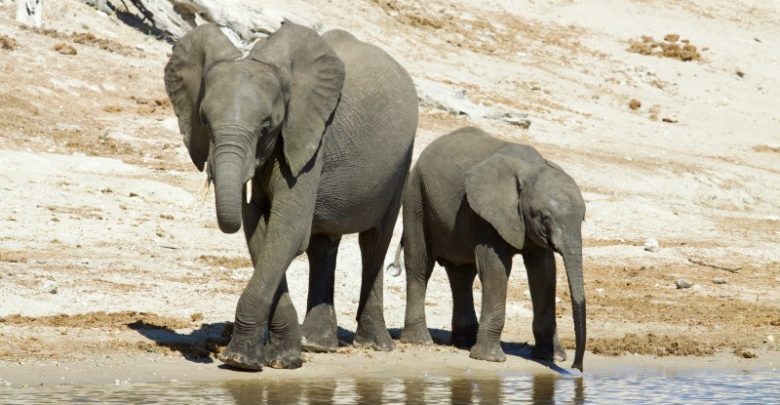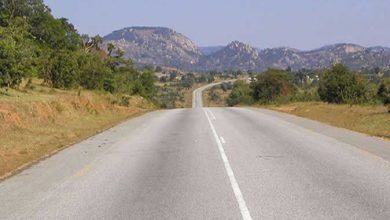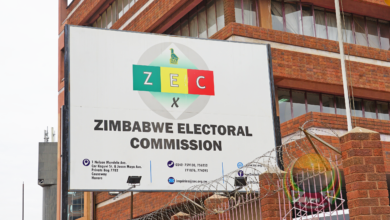Elephant exports: ZimParks releases sales figures
...but animal rights activists are not convinced

The country’s wildlife authority, Zimbabwe Parks and Wildlife Authority (ZimParks), has succumbed to pressure and released figures of proceeds made from the controversial sale of elephants but animal rights activists argue the figures still do not add up.
Home to the second-largest elephant population, Zimbabwe is a key exporter of baby elephants and last week CITE published an article detailing some of the murky deals the organisation has been involved in.
This was on the backdrop of spirited lobbying made by wildlife activists and lawyers who said only a fraction of money realised from the sale found its way into national coffers since the exports were shrouded in secrecy.
However, this week, ZimParks, said it made over US$3.2 million after a sale of 101 baby elephants to China and the United Arab Emirates between 2016 and this year.
From these proceeds, ZimParks said the money would be used to capacitate the authority’s conservation activities.
According to a statement released by ZimParks, the organisation pocketed $3 253 000 from the sales and spent about $3 253 225,45 to buy Toyota Land Cruiser vehicles, among other accessories, for the day to day running of the organisation and game parks.
Reports said ZimParks sold a calf for US$32 000 on average, while activists believe an individual elephant sale price can reach as high as US$100 000.
Wildlife activists still dispute the figures released by ZimParks, saying it is hard to tell if the authority is telling the truth as they made sure to conduct the sale in secret.
After years of denying the trade was taking place, it was in May this year, where the government announced that between 2012 and 2018, Zimbabwe had sold 97 baby elephants to China and Dubai, raking in US$2.7 million.
In an interview with CITE, Lenin Tinashe Chisaira, a lawyer with Advocates4Earth, said lack of transparency on the part of the government was still a challenge.
“This is the problem that we have been highlighting. There is no transparency to know what exactly goes in on these sales. I’m not sure if ZimParks issued these recent figures in passing or whether this is a substantial balance. ZimParks has not been forthcoming about the whole process,” he said.
Nevertheless, Chisaira noted that their advocacy work and piling pressure on ZimParks was bearing fruit.
“Yes, definitely! We have been doing this work for a very long time and this year we are starting to see some action from the activism that we have raised. One may think we are too focused on animals but our work is significant to communities and the environment,” said the environmental lawyer.
His sentiments were echoed by Zimbabwean animal rights activist, Sharon Hoole.
“The question to ask is have they declared everything? Did they not make more than that and where is the income from all the other live animals they sold such as hyenas?” she questioned.
Hoole also interrogated whether ZimParks went to tender before purchasing equipment such as vehicles.
“They spent about US$2 million for vehicle purchases yet one land cruiser, through an online search would reveal that one is R168 000. Does ZimParks pay duty for vehicle purchases, if they do not – they must show why so much was allocated towards that.
“Does ZimParks have a tight audit process and are there no financial misconducts? We need to know where the other money was spent on. Why buy ammunition and how much was bought? How much was spent on patrol dogs and so on. This is the information we need to know and has to be laid in a transparent manner, which is why an audit must reveal such expenses,” she said.
Meanwhile, reports say the group of about 32 young elephants sold to China recently and held in concrete pens at an unknown location are “stressed.”
These elephants are under preparation for new homes in wildlife parks and zoos after leaving their herds in the Hwange National Park a year ago and flown out of the country from Victoria Falls airport two weeks ago onboard a Saudia Cargo B777 Freighter Registration HZ-AK71 operating as flight SV3049.
In May, Advocates4Earth, known as The People and Earth Solidarity Law Network then, filed a lawsuit demanding the government release details of the sale of the elephants.
The case is yet to be heard but this group of elephants let the country despite warnings from the environmental lobby group that any attempt to export the elephants before the case was resolved would amount to contempt of court.






Elephants if left to starve, due to low ,only serve to feed vultures, therefore if they can be usefull by brining in cash and be kept alive – why not ?
Botswana has carved ivory for sale in expensive hotels, A sound program in Zimbabwe would be to have ONLY that ivory which had been caved in Zimbabwe sold to tourists within Zimbabwe.